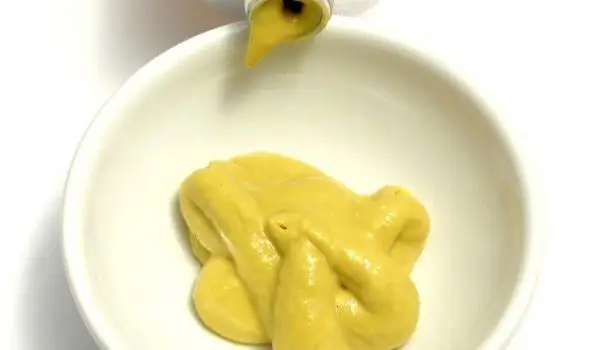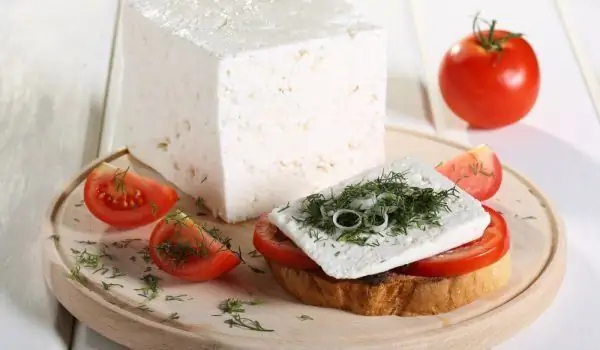2025 Author: Jasmine Walkman | [email protected]. Last modified: 2025-01-23 10:18
Most people who like to season their dishes with mustard know that it is made from mustard plant. The French came up with the idea to add the unfermented juice of the grapes to the crushed seeds of the spicy spice and thus obtained the exotic-tasting mustard.
Before them, the plant was considered only medical, but not culinary.
In the 6th century BC, Pythagoras used it as a remedy for scorpion stings. 100 years later, Hippocrates prepared medicines and ointments for toothache and other complaints of mustard seeds.
It is clear that this is one of the oldest spices used in the world. In support of this is that the Chinese too they have known mustard for thousands of years and actively use it.
Characteristics, types and composition of the mustard plant
Mustard (Sinapis) is a genus of angiosperms. They have the most complex plant body in terms of morphology. They belong to the higher plants of the cruciferous family - Brassicaceae.
Mustard is very rich in glycosides. Sinigrin and myrosin are the main glycosides in its composition. In addition, the essential oil, fatty oil, protein and phenyl propane derivatives are found in its formula. Mucous substances and proteins are also an important element of the composition. Mustard essential oil is composed mainly of allyl isothiocyanate.
Wed. useful substances in mustard the most significant place is occupied by selenium and magnesium, which are high in content. Mustard seeds are also a good source of elements such as manganese, omega-3 fatty acids and phosphorus.
Mustard counts in total about 40 species, but three of them are the most famous and most widely used.
Among the common species of the genus Sinapis are:

- Black mustard (Brassica Nigra);
- White mustard (Brassica alba);
- Brown mustard (Brassica juncea);
Black seeds have the sharpest taste. Mustard is made from whites, which are actually yellowish, and browns are very common in India, China and Japan, where they are used as a salad dressing.
When chewing mustard seeds, a bitter taste is first felt, which then turns into a sharp and pungent note, which is well known from mustard.
All three species originate from different parts of Europe and Asia.
White mustard is a spice from the eastern parts of the Mediterranean. The brown is from the foothills of the Himalayas and the black comes from the Middle East.
Application of mustard seeds in cooking
In western countries use mustard seeds for marinades, brines and canning. It is a mandatory spice in pickles and pickles, sometimes put in sauerkraut, you can also prepare green tomatoes with mustard. Homemade ketchup with mustard also becomes very appetizing. It is sometimes combined with horseradish, black pepper, garlic, onion and dill. As it is a strong spice, 1 tablespoon is added to 10 liters of liquid mustard seeds.
In India, mustard is very valuable. They use its leaves in salads, fry the seeds in oil until they crackle, and then add it as a side dish to dishes. It is also consumed raw. Sprinkle rice dishes with brown mustard. They also make different curry recipes where mustard is combined with other spices.
White mustard can often be found in spice mixes used in cooking meat and seafood.
Of course, mustard is the most famous of all culinary magic, based on mustard seeds. It is safe to say that mustard is one of the great achievements of modern cuisine, because without mustard recipes sandwiches and snacks would not have the taste we know now.

Mustard is made according to a recipe known to almost every lover of this supplement. Mustard seeds are ground in bulk, the fat is removed by pressing, vinegar, salt and sugar are added, as well as other spices such as garlic, tarragon, allspice, cloves and cinnamon and then fermented for 24 hours. Dozens types of mustard, known to everyone, has a wide application in cooking.
Application of mustard seeds for medicinal purposes
Mustard seeds are rich in phytonutrients, also known as glucosinates. The human body converts them into isothiocyanates. They have antitumor properties. They stop the division of the tumor cell and stimulate the death of existing tumor cells. They are useful in bladder cancer, and the addition of mustard as a spice to food is considered a prevention against this disease. They also protect against stomach cancer.
As they contain selenium in large quantities - about 21 percent of the recommended daily dose is only in 1 tablespoon of mustard seeds, it also serves as a regulator of thyroid function. Selenium is an antioxidant that protects against free radicals and also has a beneficial effect on thyroid hormones.
There are seeds in mustard seeds also an anti-inflammatory, it is called curcumin. Turmeric is a fat-soluble pigment that gives the seed its yellow color and is also found in turmeric, ginger and other yellow herbs and spices. Curcumin is an antioxidant with powerful anti-cancer as well as anti-inflammatory properties. It relieves pain in arthritis and intestinal inflammation.
Magnesium, in combination with selenium, gives mustard seeds anti-inflammatory and warming properties. In case of muscle fever, colds, a warming compress with mustard seeds is recommended.
Because mustard seed is a good source of nutrients, its use helps build cell membranes in the brain. Calcium, potassium, iron, manganese, phosphorus and zinc are the beneficial elements that support brain activity.

Mustard seeds are recommended for psoriasis. It has both protective and curative effects in this autoimmune disease.
Mustard seeds cause a protective vomiting effect in case of poisoning. The decoction of the seeds cleanses the body and is popular in alcohol poisoning.
Mustard warms and is useful for people who suffer from nerve damage. It has a stimulating effect on the nervous system.
Because it contains carotenes, lutein and zeaxentin, vitamins A, C and K, they make them rich in antioxidants that slow down the aging process.
Manganese, copper, iron and others minerals in mustard improve immunity, and contain nutrients that strengthen the body's resistance to disease. Mustard seeds also cure bronchitis and other colds, and reduce fever. Regulates blood pressure, reduces migraine attacks and keeps asthma under control.
Other mustard seed products
Mustard seed is also used to make mustard flour after grinding. Mustard flour is used mainly in folk medicine in the treatment of various diseases. It is used to make an effective ointment for joint pain.
It is also very effective for coughs. An ointment is prepared from the flour, which is applied to the chest and a warming compress is made.
The health benefits of mustard flour have also been tested for internal use. It is suitable for cardiovascular problems, stomach pain, sand in the kidneys and others.
Mustard flour can also be used to make homemade mustard for culinary use.
Mustard seed is a 100 percent natural product with a proven effect, which has been widely used over the centuries for its many benefits.
Some interesting facts about mustard
Different cultures use mustard in different ways. They sew it inside the clothes for courage and security. He is scattered around the house to ward off evil spirits and other ritual activities.
Mustard seeds are so popular that they are mentioned in the New Testament. There the Kingdom of Heaven is compared to a mustard seed.
The unique healing properties of mustard seeds are due to the fact that mustard is of the genus Cruciferous, which is very friendly to human health.
Recommended:
Mustard Seeds Speed Up Metabolism

Mustard belongs to the family of cruciferous plants and can be considered a relative of broccoli, Brussels sprouts and ordinary cabbage. Its original homeland is the Far East, as the plant is extremely deeply entrenched in the national cuisines of China, Korea, Japan and India.
Cure High Blood Pressure With Mustard Seeds

There are many recipes for lowering high blood pressure. However, with such a problem, it is not desirable to start treatment on your own without consulting a specialist. Often folk recipes for hypertension are a good helper, but there are cases in which medication is necessary.
Mustard - Cosmetics And Medicine

Mustard has been known since ancient times. Mustard seeds are very useful and can be used as a medicine, as well as for cosmetic and even household purposes. If you have a sore throat, gargle with a special mustard solution. You need 1 tablespoon of mustard seeds, the juice of half a lemon, 1 teaspoon of salt, 1 tablespoon of honey, 1 teaspoon of boiling water.
Mustard And Melting Fat

For mustard and melting fat is often spoken together, as it is believed that the spicy spice helps to raise metabolism . Is there any truth in this? Advances in the theory of mustard and fat melting There is evidence that spicy and spicy products help to raise the level of metabolism which leads to faster fat burning.
We Eat Less And Less Native Cheese And More And More Gouda And Cheddar

The sale of white brined cheese in Bulgaria is much lower compared to the consumption in 2006, shows an analysis of the Institute of Agrarian Economics, quoted by the newspaper Trud. Consumption of yellow cheese in our country has also fallen.

